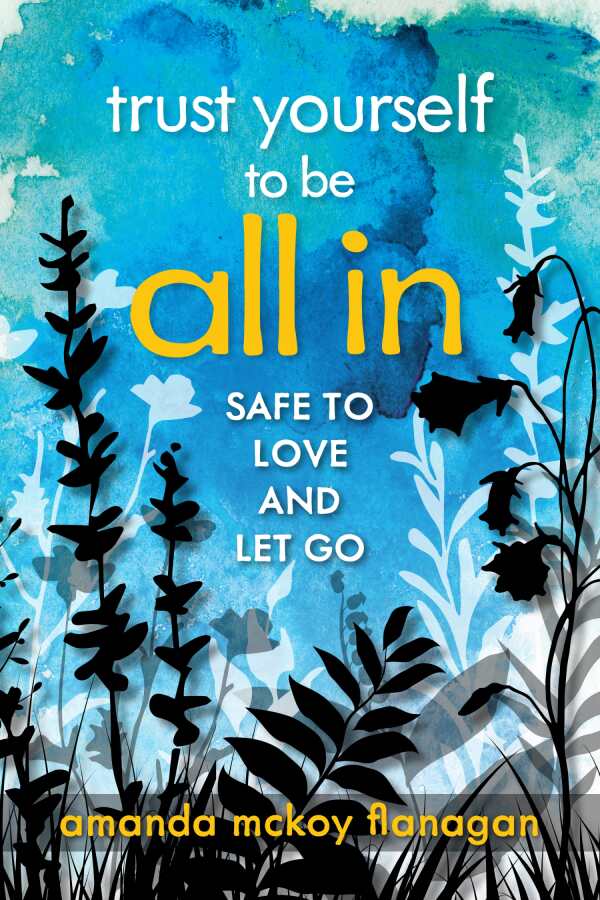Trust Yourself to Be All In
Safe to Love and Let Go
Trust Yourself to Be All In is an inspiring account of how one woman pieced together wisdom from a variety of philosophies to address her own trauma.
Amanda McKoy Flanagan’s memoir-cum-self-help-book Trust Yourself to Be All In draws on personal experiences to suggest methods for healing from addiction and loss.
After achieving ten years of sobriety, Flanagan came to believe that she had the resources to withstand anything life threw at her. But after her brother’s death from an overdose, the traumas of her past resurfaced, including from her childhood sexual abuse, her parents’ divorce, and a cross-country move after Hurricane Sandy. She also came to the sudden understanding that her marriage was in trouble.
Navigating her grief with the help of therapy, a twelve-step program, and New Age wisdom, Flanagan emerged from this difficult period with a stronger marriage, the tools to heal from generational trauma, and the renewed ability to continue developing self-love and self-awareness. And herein, both Flanagan’s despair and joy are made palpable through the motif of music. For example, she connects a memory of being unable to see her parents in the audience of a school recital to her lack of trust in connection with others while listening to Bette Midler’s “The Rose.” And her attendance at two Pearl Jam concerts bookends her healing experience effectively; the juxtaposition of these events reflects the extent of her emotional transformation on the whole.
Incorporating wisdom from Buddhism, Christianity, the social sciences, and New Age philosophies, this is a diverse but comprehensive guide to healing from loss. It espouses beliefs in souls and past lives and shifts blame for one’s hardships to the individual soul, suggesting the importance of taking personal responsibility for actions and their outcomes. However, its chapters center on single memories or emotions regardless of chronology, so that the timeline of events in Flanagan’s life comes to seem imprecise. For example, it is unclear until far into the book when her brother’s death occurred in relation to her own alcoholism recovery and her marriage troubles.
More effectively addressed are the tools that Flanagan used during her self-reflection. These include inner child meditation, tapping, chakra cleansing, practicing compassionate forgiveness, and cultivating an attitude of humility. Each method is outlined in precise language, with examples of Flanagan’s own use of them used to solidify understandings of their functions in exploring resentment, trust issues, and a connection to a higher power. For example, she recalls meditating with the mantra “be not afraid” before approaching her husband about starting marriage counseling. These methods for healing are rendered motivational on an individual basis, though they do not always cohere on the whole.
There is no one-size-fits-all way to navigate grief and addiction; the expansive self-help guide Trust Yourself to Be All In acknowledges this alongside an inspiring account of how one woman pieced together wisdom from a variety of philosophies to address her own trauma.
Reviewed by
Aimee Jodoin
Disclosure: This article is not an endorsement, but a review. The publisher of this book provided free copies of the book and paid a small fee to have their book reviewed by a professional reviewer. Foreword Reviews and Clarion Reviews make no guarantee that the publisher will receive a positive review. Foreword Magazine, Inc. is disclosing this in accordance with the Federal Trade Commission’s 16 CFR, Part 255.

